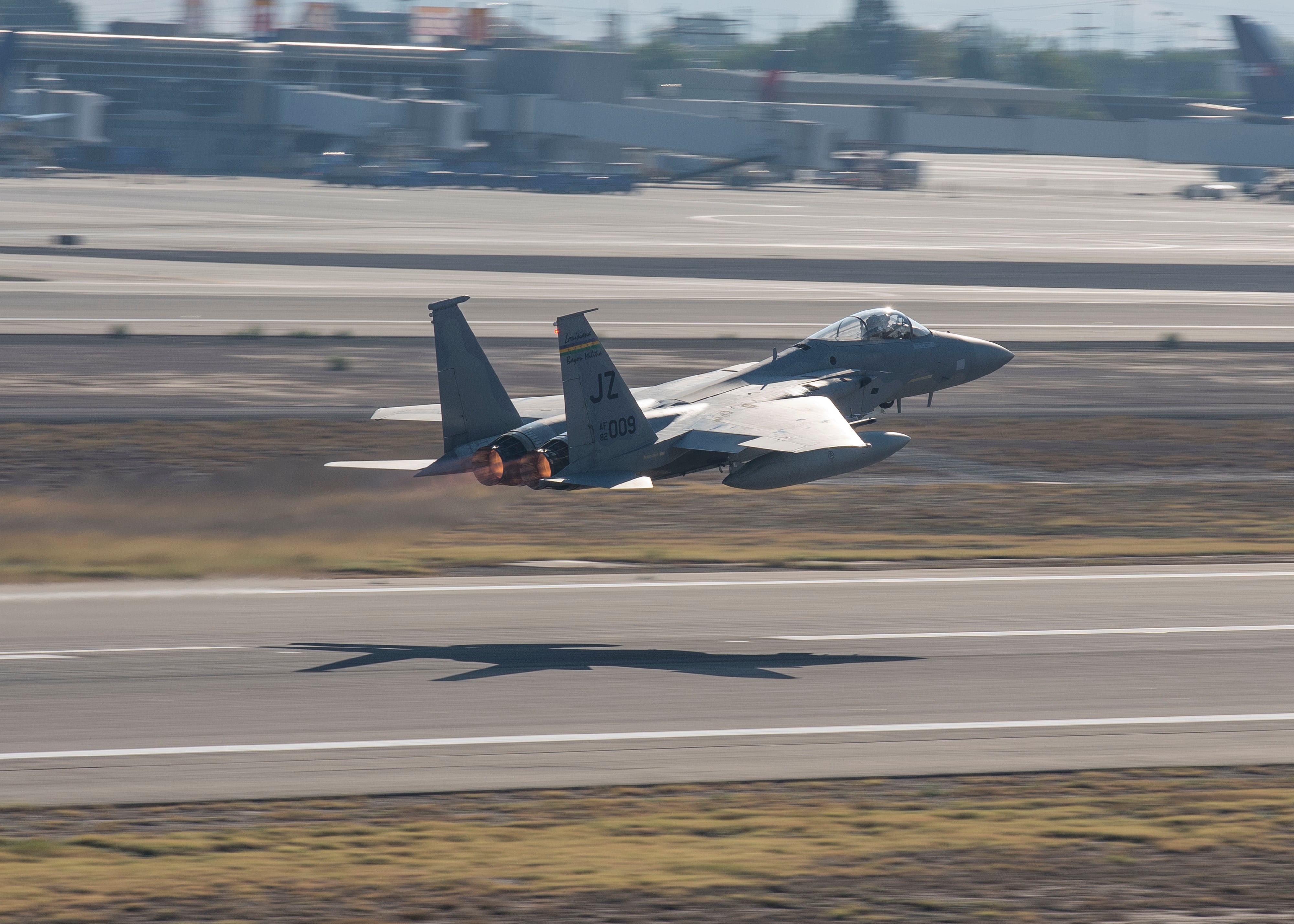WASHINGTON — Lockheed Martin has been given assurances by top Pentagon leaders that the F-35 program will not be negatively impacted by a potential U.S. Air Force buy of Boeing’s F-15X, Lockheed CEO Marillyn Hewson said Tuesday.
“If they choose to have an order of the F-15, it won’t be at the expense of F-35 quantities,” she told investors during an earnings call.
“I'm hearing that directly from leadership in the Pentagon, and I think that's an important point for me to make. It's not just our suspicion, but I've been told that directly.”
RELATED

The U.S. Air Force is expected to roll out a plan to begin buying new F-15s in its upcoming fiscal 2020 budget release. In December, Bloomberg reported the service intends to purchase 12 new F-15X aircraft in 2020 for $1.2 billion.
On Friday, Gen. Dave Goldfein, the Air Force’s chief of staff, confirmed to Defense News that the service will procure new F-15s if the budget grows enough to allow it, but that the F-35 program of record would remain the same with no slowdown to the buy rate.
“I’m not backing an inch off of the F-35” Goldfein said. “The F-35 buy that we’re on continues to remain on track. And I’m not interested in taking a nickel out of it when it comes to buying anything else in the fighter portfolio.”
Goldfein added that the Air Force wants to increase fighter procurement to 72 aircraft a year.
The Air Force has about 230 F-15 "C" and "D" models currently in service, and the F-15X will replace the portion of the fleet owned by the Air National Guard, according to Bloomberg. The new F-15 model will have new radar and electronic warfare equipment, the ability to carry more weapons, and include other improvements originally designed for Saudi Arabia’s and Qatar’s F-15s.
If the service maintained a rate of one F-15X a month, it would be free to boost its F-35 production rate to 60 aircraft a year — a number that Air Force officials had cited as key for production ramp up. However, the FY19 budget forecast showed that the service would likely be unable to procure the F-35 in those quantities before FY23.
“If we had the money, those would be 72 F-35s. But we’ve gotta look at this from a cost/business case.” Goldfein said. “An F-15 will never be an F-35. Never. But I need capacity.”
Hewson’s statement indicates that support for the F-35 continues to be strong both within the Air Force and among Pentagon leaders. However, earlier on Tuesday, acting Defense Secretary Patrick Shanahan told reporters he wants to see “more performance” from the F-35, although he did not specify particular areas of improvement.
“I am biased towards giving the taxpayer their moneys’ worth. And the F-35, unequivocally, I can say has a lot of opportunity for more performance,” said Shanahan, a former Boeing executive.
When investors asked Hewson to respond to Shanahan’s critique, the Lockheed CEO said the company remains on the same page with the Pentagon on the need to reduce the cost per plane.
“We’re on a path to drive it to an $80 million [unit cost] for the F-35A by full-rate production,” which is projected to begin in Lot 15 with deliveries starting in 2023, Hewson said.
“So as long as we stay on our procurement rate plan — which by all accounts we’re going to continue to ramp up at the rate that we envisioned — then we’re going to continue to drive the price down."
Aaron Mehta in Washington contributed to this story.
Valerie Insinna is Defense News' air warfare reporter. She previously worked the Navy/congressional beats for Defense Daily, which followed almost three years as a staff writer for National Defense Magazine. Prior to that, she worked as an editorial assistant for the Tokyo Shimbun’s Washington bureau.








